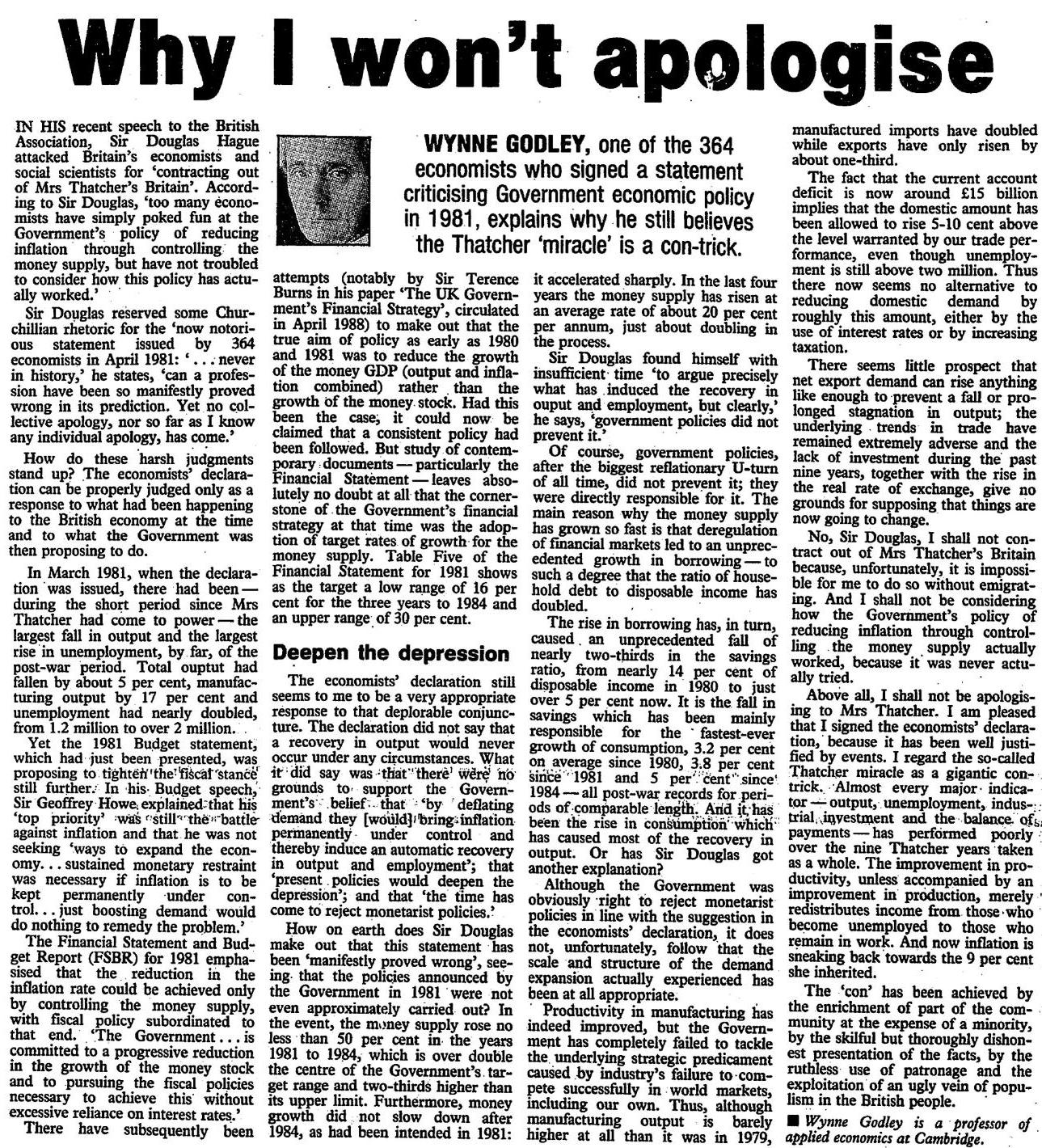There have been too many praises for Mrs Thatcher after her death today.
Wynne Godley once described the Thatcher “miracle” as a gigantic con-trick. Here is from a newspaper article:
I regard the Thatcher miracle as a gigantic con-trick. Almost every major indicator – output, unemployment, industrial investment, and the balance of payments has performed poorly over the nine Thatcher years taken as a whole … The ‘con’ trick has been achieved by the enrichment of part of the community at the expense of a minority, by skilful but thorougly dishonest presentation of the facts, by the ruthless use of patronage and the exploitation of an ugly vein of populism in the British people.
– Wynne Godley in Why I Won’t Apologize, September 18, 1988, Observer.
The article scan is below:
Wynne Godley, Why I Won’t Apologize
(click to enlarge and click again)
Also see the papers which describes the right facts:
- Coutts, K. and Godley, W. (1989), The British Economy Under Mrs Thatcher. The Political Quarterly, 60: 137–151. (Link)
- Godley, W. (1990), The British Economy Under Mrs Thatcher: A Rejoinder. The Political Quarterly, 61: 101–102. (Link)
Thatcher’s bluff was caught very early by Godley. The huge rise in unemployment (to 3 million) was predicted first by Wynne Godley himself in 1979.
Reference: Godley W., ‘Britain’s chronic recession-can anything be done?’ in W. Beckerman (ed.) Slow Growth in Britain, Oxford University Press, 1979.
His King’s College Obituary (Annual Report, 2011) had this to say about Thatcherism:
Wynne rather relished his reputation as the ‘Cassandra of the Fens’. He famously made a double prediction: that under current policies of the first Thatcher government unemployment would inevitably rise to three million, but – the second prediction – that this would not in fact happen, on the grounds that, since in post-war Britain three million unemployed had to be an electoral suicide note, the policies would have to be changed. He was right with the first prediction, and – misreading the not-for-turning dispositions of the Iron Lady – wrong with the second. The actual outcomes appalled him. For Wynne the fundamental economic responsibility of a government was to ensure ‘full employment’. In pursuit of that aim he was uninhibited as Keynes himself and perhaps rather close in his motivation. He believed it was essential to use fiscal levers to stimulate demand, and was even prepared – though under very strict conditions – to countenance temporary import controls to protect and strengthen economic activity. His ideas were controversial and, like the man himself, often stood at an odd angle to the contemporary world, but the moral imagination which informed them was large and generous.
